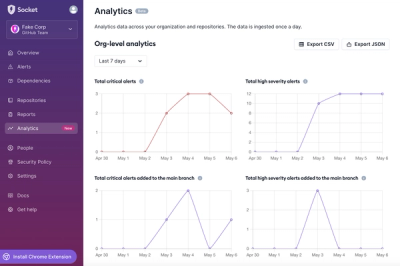RecomPI API
A Python wrapper for the RecomPI API, providing methods to interact with the service for tracking user behavior and obtaining recommendations.
Installation
Install the RecomPI library using pip:
pip install recompi
Usage
Initialization
Create an instance of the RecomPI class using your campaign's API key.
from recompi import RecomPI
api = RecomPI(api_key="YOUR_CAMPAIGN_TOKEN")
Campaign Token: To obtain YOUR_CAMPAIGN_TOKEN, register on the RecomPI panel. After registration, add a campaign in the panel, and a campaign token will be generated instantly. Use this token as your API key in the code.
Pushing User Behavior
Use the push method to send user interaction data to the RecomPI API. You can include tags, profiles, location, and geographical information.
from recompi import RecomPI, Tag, Profile, SecureProfile, Location, Geo
api = RecomPI(api_key="YOUR_CAMPAIGN_TOKEN")
response = api.push(
label="click",
tags=[
Tag(id="1", name="Technology", desc="Technology News"),
Tag(
id="2",
name="Online Marketing Tools",
desc="Latest news on online marketing tools",
),
],
profiles=Profile("user_id", "123"),
location=Location(
ip="1.1.1.1",
url="https://www.example.com/some/path?param1=1¶m2=2",
referer="REFERER_URL",
useragent="USERAGENT",
),
geo=Geo(
country="Iran",
province="Tehran",
),
)
print(response)
Parameters
label (str): A label for the event, e.g., "click".tags (list[Tag]): List of Tag objects representing metadata.profiles (list[Profile|SecureProfile] or Profile|SecureProfile): List of Profile or SecureProfile objects or a single Profile or a single SecureProfile.location (Location, optional): A Location object containing IP, URL, referer, and user-agent information.geo (Geo, optional): A Geo object containing geographical information like country and province.
Getting Recommendations
Use the recom method to get recommendations based on user interactions, profiles, and geographical information.
from recompi import RecomPI, Profile, Geo
api = RecomPI(api_key="YOUR_CAMPAIGN_TOKEN")
response = api.recom(
labels=["click", "buy"],
profiles=Profile("user_id", "123"),
geo=Geo(
country="Iran",
province="Tehran",
),
)
print(response)
Parameters
labels (list[str]): List of event labels for which recommendations are requested.profiles (list[Profile|SecureProfile] or Profile|SecureProfile, optional): List of Profile or SecureProfile objects or a single Profile or a single SecureProfile.geo (Geo, optional): A Geo object containing geographical information.
Explanation of Response:
The response structure ({'click': {'18': 0.25, '19': 0.75}, 'buy': {'13': 0.89, '95': 0.11}}) indicates:
- For the
click label, the user is predicted to engage more with Tag.id = 19 (with a probability of 0.75) compared to Tag.id = 18 (0.25). - For the
buy label, the user is likely to make a purchase with Tag.id = 13 (0.89 probability) rather than Tag.id = 95 (0.11 probability).
These predictions are derived from the user's past interactions (click and buy events) and other factors such as their profile attributes and geographical location. The recommendation engine uses this data to suggest items or actions that are likely to be of interest to the user, helping to optimize engagement or conversions based on predictive analytics.
Verifying API Connectivity
Use the verify method to check if the API key and configuration are correct.
from recompi import RecomPI
api = RecomPI(api_key="YOUR_CAMPAIGN_TOKEN")
response = api.verify()
print("API is well configured and connected?", response.is_success())
Usage with SecureProfile
You can use SecureProfile to ensure that sensitive information such as user IDs are hashed before being sent to the API. This adds an extra layer of security by obfuscating the actual IDs.
from recompi import RecomPI, Tag, SecureProfile, Location, Geo
api = RecomPI(api_key="YOUR_CAMPAIGN_TOKEN", hash_salt="SOME_HASH_SALT")
response = api.push(
label="click",
tags=[
Tag(id="1", name="Technology", desc="Technology News"),
Tag(
id="2",
name="Online Marketing Tools",
desc="Latest news on online marketing tools",
),
],
profiles=SecureProfile(name="user_id", id="123"),
location=Location(
ip="1.1.1.1",
url="https://www.example.com/some/path?param1=1¶m2=2",
referer="REFERER_URL",
useragent="USERAGENT",
),
geo=Geo(
country="Iran",
province="Tehran",
),
)
print(response)
Parameters
label (str): A label for the event, e.g., "click".tags (list[Tag]): List of Tag objects representing metadata.profiles (list[Profile|SecureProfile] or Profile|SecureProfile): List of Profile or SecureProfile objects or a single Profile or a single SecureProfile.location (Location, optional): A Location object containing IP, URL, referer, and user-agent information.geo (Geo, optional): A Geo object containing geographical information like country and province.
Additional Details:
- Initialization:
SecureProfile is initialized with name and id. It extends the base Profile to add the capability of hashing the id. to_json Method: This method converts the SecureProfile instance to a JSON-compatible dictionary, hashing the id if a hash_salt is provided. This is useful for securely sending profile data.recom: If you use SecureProfile in the push method, you must also use SecureProfile to retrieve data with the recom method. This ensures the consistency of hashed data between sending and retrieving.
Data Structures
Tag
Represents a tag with an ID, name, and description.
from recompi import Tag
tag = Tag(id="1", name="Technology", desc="Technology News")
Profile
Represents a user profile with an ID and name.
from recompi import Profile
profile = Profile(name="user_id", id="123")
print(profile.to_json())
SecureProfile
Represents a user profile with a secure ID and name.
from recompi import SecureProfile
profile = SecureProfile(name="user_id", id="123")
print(profile.to_json())
print(profile.to_json("SOME_HASH_SALT"))
Location
Represents a location with IP, URL, referer, and user-agent information.
from recompi import Location
location = Location(ip="1.1.1.1", url="https://www.example.com", referer="REFERER_URL", useragent="USERAGENT")
Geo
Represents geographical information with country and province.
from recompi import Geo
geo = Geo(country="Iran", province="Tehran")
Error Handling
RecomPIFieldTypeError
Raised when an input field does not match the expected type.
from recompi import RecomPIFieldTypeError
try:
pass
except RecomPIFieldTypeError as e:
print(e)
RecomPIException
General exception class for other RecomPI errors.
from recompi import RecomPIException
try:
pass
except RecomPIException as e:
print(e)
Contributing and Development
We welcome contributions to RecomPI! If you'd like to contribute, please follow these steps:
- Fork the repository and clone it to your local environment.
- Install dependencies and set up a development environment.
python3 -m venv venv
source venv/bin/activate
pip install -r requirements-dev.txt
pre-commit install --hook-type pre-commit --hook-type pre-push
- Make changes, write tests, and ensure all tests pass.
- Submit a pull request with a detailed description of your changes.
Support
For support or questions, please submit a ticket or open an issue on GitHub.



